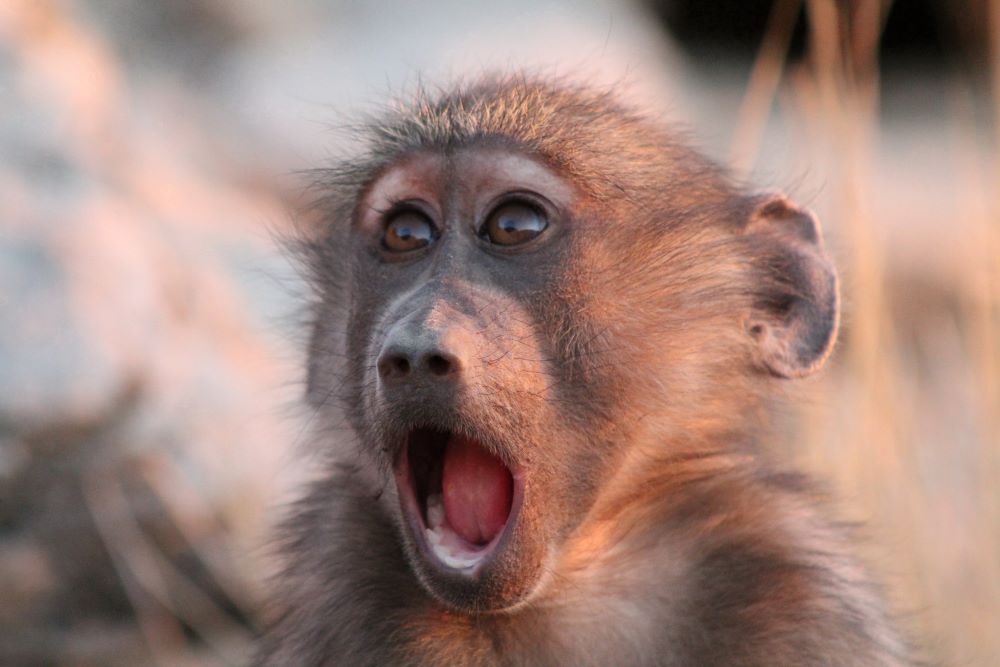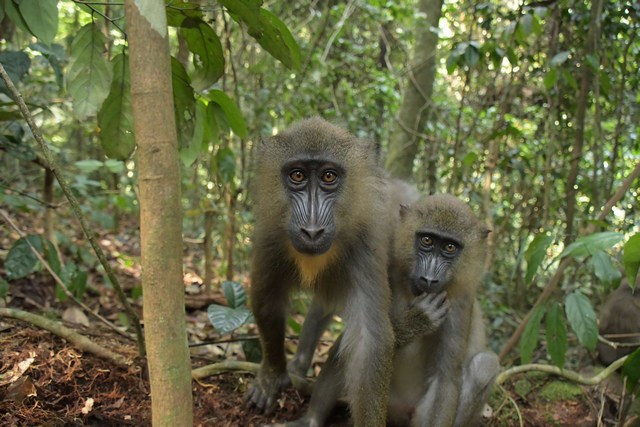
Elise Huchard
I am interested in the evolution of mammalian social and mating systems. At the interface between sexual and kin selection, a major focus of my work explores the causes and consequences of reproductive and life-history strategies in mammalian societies using observational and experimental data, mainly in the context of long-term individual-centered studies.
My research examined the evolution of sexual signals, mating choice, mating with multiple partners (polyandry), and reproductive competition in females from natural populations of primates and other social mammals.
I am currently working specifically on sexual conflict, as well as genetic and social influences on development, growth, and immunity in the context of life history trait theory, occasionally using quantitative genetic tools or comparative studies, and using Tsaobis baboons, Kirindy lemurs, Kalahari meerkats, and Bakoumba mandrills as my primary models (see attached figure).
Tsaobis Baboon Project
The ecology of sexual coercion and of male-female power asymmetries in primates : Elise Huchard | Frontiers in Social Evolution (FINE) online seminar series
Primatology
Interview with Elise Huchard - France Culture - Wednesday, March 05, 2024 4pm
- Nikolaos Smit, Jules Dezeure, Loïc Sauvadet, Elise Huchard, Marie J.E. Charpentier. Socially bonded females face more sexual coercion in a female-philopatric primate. iScience, 2023, 26 (10), pp.107358. ⟨10.1016/j.isci.2023.107358⟩. ⟨hal-04240885⟩
- Jochen Krattenmacher, Paula Casal, Jan Dutkiewicz, Elise Huchard, Edel Sanders, et al.. Universities should lead on the plant-based dietary transition. Lancet Planetary Health , 2023, 7 (5), pp.E354-E355. ⟨10.1016/S2542-5196(23)00082-7⟩. ⟨hal-04127870⟩
- Axelle Delaunay, Alice Baniel, Jules Dezeure, Alecia J Carter, Guy Cowlishaw, et al.. Transition to siblinghood in a wild chacma baboon population. Animal Behaviour, 2023, 199, pp.123-139. ⟨10.1016/j.anbehav.2023.02.011⟩. ⟨hal-04070047⟩
- Jules Dezeure, Alice Baniel, Lugdiwine Burtschell, Alecia J Carter, Bernard Godelle, et al.. Evolutionary determinants of non-seasonal breeding in wild chacma baboons. The American Naturalist, 2023, 201 (1), ⟨10.1086/722082⟩. ⟨hal-03854878⟩
- Nikolaos Smit, Barthélémy Ngoubangoye, Marie Charpentier, Elise Huchard. Dynamics of intersexual dominance in a highly dimorphic primate. Frontiers in Ecology and Evolution, 2022, 10, ⟨10.3389/fevo.2022.931226⟩. ⟨hal-04198820⟩
- Silvia Carboni, Jules Dezeure, Guy Cowlishaw, Elise Huchard, Harry H Marshall. Stable isotopes reveal the effects of maternal rank and infant age on weaning dynamics in wild chacma baboons. Animal Behaviour, 2022, 193, pp.21-32. ⟨10.1016/j.anbehav.2022.08.010⟩. ⟨hal-03854810⟩
- Shivani M, Elise Huchard, Dieter Lukas. The effect of dominance rank on female reproductive success in social mammals. Peer Community In Ecology, 2022, 2, pp.e48. ⟨10.24072/pcjournal.158⟩. ⟨hal-03768139v2⟩
- Nikolaos Smit, Alice Baniel, Berta Roura-Torres, Paul Amblard-Rambert, Marie Charpentier, et al.. Sexual coercion in a natural mandrill population. 2022, pp.e36. ⟨10.24072/pcjournal.134⟩. ⟨hal-03768167⟩
- Julien Collet, Nathalie Pettorelli, Alice Baniel, Alecia J Carter, Elise Huchard, et al.. Immigrant males' knowledge influences baboon troop movements to reduce home range overlap and mating competition. Behavioral Ecology, 2022, 33 (2), pp.398-407. ⟨10.1093/beheco/arab145⟩. ⟨hal-03463550⟩
- Peter M. Kappeler, Elise Huchard, Alice Baniel, Charlotte Canteloup, Marie J.E. Charpentier, et al.. Sex and dominance: How to assess and interpret intersexual dominance relationships in mammalian societies. Frontiers in Ecology and Evolution, 2022, 10, pp.918773. ⟨10.3389/fevo.2022.918773⟩. ⟨hal-03820273⟩




